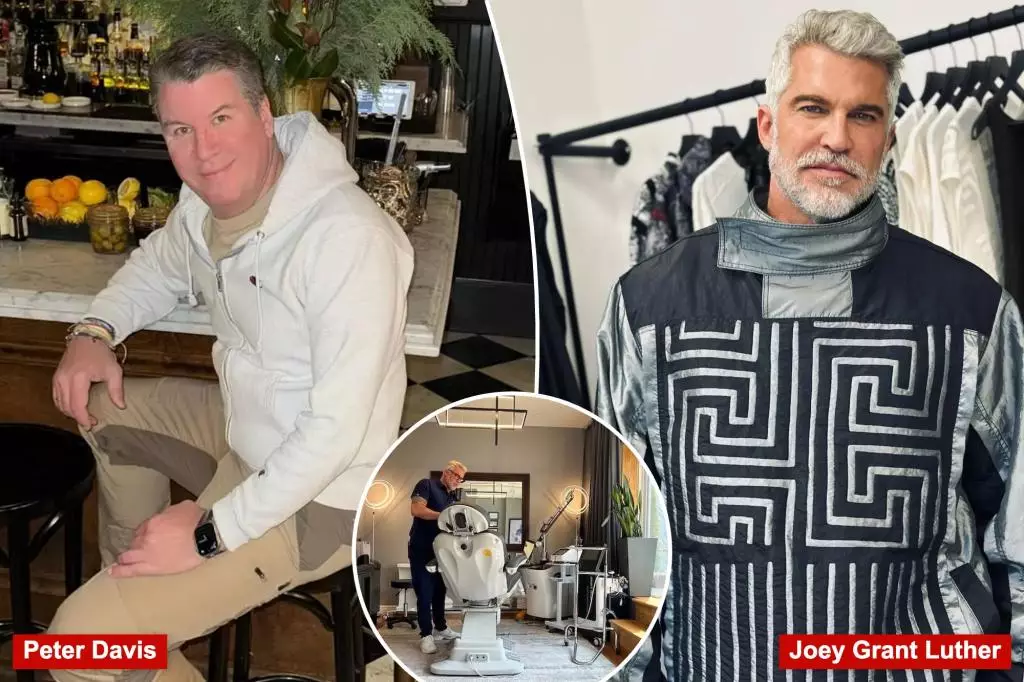In recent months, the Aesthetic industry has been rocked by scandal as queries about safety, legality, and ethics flood the airwaves. The arrest of Dr. Joey Grant Luther, a supposed skin doctor whose practice was marred by accusations of administering counterfeit Botox from China, has left many in the socialite community in disbelief. This incident shines a spotlight on the perilous pursuit of beauty, particularly in the face of questionable medical practices.
Dr. Luther, the operator of JGL Aesthetics in New York, was allegedly offering under-the-table beauty treatments that promised all the benefits of Botox without the corresponding safety measures. His clientele, who sought smoother complexions and a more youthful appearance, were unaware of the risks they were taking. This case exemplifies the darker side of the burgeoning aesthetic market, where the line between professional and amateur often blurs in the quest for a flawless appearance.
Socialite Peter Davis, editor-in-chief of Avenue magazine, publicly acknowledged his former association with Luther, humorously reflecting on his close call with disaster. As he narrates his experience, it becomes evident how trust can easily morph into vulnerability in an industry rife with opportunism. Davis commented on his experience, expressing disbelief that he emerged unscathed while others suffered severe side effects, including potentially life-threatening complications like botulism.
The allegations against Luther raised serious questions about the legality of aesthetic procedures performed by individuals lacking proper medical credentials. Anesthetists, for example, are not allowed to inject Botox, and yet Luther operated in a makeshift facility unauthorized to conduct such medical treatments. His setup, which resembled a legitimate med spa, misled many patients.
Davis’s account of the situation underscores how the lure of low prices can outweigh the crucial need for background checks and safety considerations. His revelation that clients followed the promise of a “good deal” clearly illustrates a misguided faith in aesthetics, leading many to ignore potentially serious red flags. Friends and acquaintances referred clients to Luther without any knowledge of his credentials, demonstrating both the allure and the potential danger of community recommendations in this field.
In the wake of Luther’s arrest, former clients have sought solace and support in a group chat aptly named “Former Lutherans.” The camaraderie among these individuals serves as a powerful reminder of the collective trauma experienced during this scandal. They share experiences, offer recommendations for qualified practitioners, and provide emotional support to each other as they grapple with the implications of their decisions.
As Davis mentions, the formation of this group chat signifies a broader reckoning within the community, particularly as many individuals scan their experiences for cautionary tales. These connections reflect the importance of mental health in the context of beauty treatments and the underlying issues that can come to light when something goes wrong. It points to a vital need for transparency and awareness in an industry built on trust.
The fallout from this incident is felt most profoundly within the gay community, which constituted a significant segment of Luther’s clientele. The scandal has upended the expectations of safety and quality that community members typically rely on, instigating a crisis of confidence amongst those seeking cosmetic enhancements. The story encompasses not just the personal effects on clients but also the ripple effects that can ensue when trust is exploited.
The implications of Luther’s actions go beyond mere legal concerns; they tap into a societal issue regarding beauty standards and the lengths to which people will go to conform to them. The notion that individuals risk their health for aesthetic enhancement brings to light the pressing need for discussions around self-worth, societal pressures, and the meaning of beauty in modern culture.
The Joey Grant Luther incident serves as a stark reminder of the vulnerability surrounding the pursuit of beauty. Not only does it highlight the importance of regulatory oversight in the aesthetics field, but it also emphasizes the need for informed decision-making among consumers. As society continues to navigate the complex dynamics of beauty, it remains crucial to prioritize personal safety over aesthetic desires. Sharing experiences is not only therapeutic but can also foster a community vigilant against exploitation in the ever-evolving landscape of aesthetic medicine.

Leave a Reply